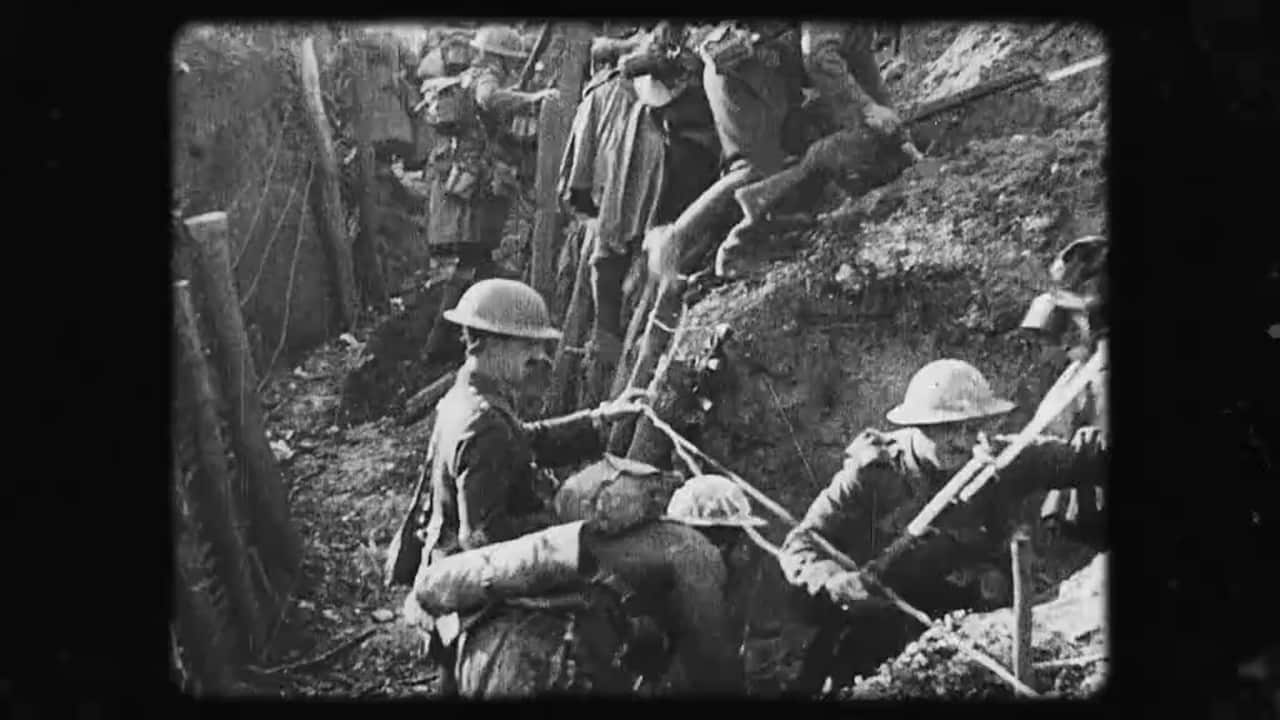Daniel Gerald Toohey's World War I record is in itself a remarkable story of bravery and survival.
Enlisting as a 29-year-old from Creswick in Victoria, he landed at Gallipoli on 25 April 1915 and was wounded that afternoon - shot in the shoulder.
Once out of hospital though, his great-grandson Troy Toohey recalls, he was soon back into action, earning the Military Cross for his acts of bravery in the bloody Western Front battle of Fromelle.
"He essentially went out into no man's land and, I think, rescued officially 25 men over three nights ... sneaked out after dark into no man's land and dragged them back for treatment," he told SBS News. Sergeant Major Toohey became one of the few to be at the Great War from start to finish, his great-grandson said.
Sergeant Major Toohey became one of the few to be at the Great War from start to finish, his great-grandson said.

Returned serviceman Sergeant Major Daniel Toohey. Source: Supplied
"It's probably a fairly small group of people that managed to survive the horrors all the way through, and you can imagine there's an element of luck there to get all the way through and manage to survive and get home," he said.
But his great service to the country didn't end there.
On his return to Australia at the end of the war, he was recruited to help construct an engineering feat - the Great Ocean Road that snakes its way along Victoria's rugged south-west coastline. Peter Spring from the Lorne Historical Society said the road was the brainchild of then-mayor of Geelong, Howard Hitchcock.
Peter Spring from the Lorne Historical Society said the road was the brainchild of then-mayor of Geelong, Howard Hitchcock.

Victoria's Great Ocean Road during construction Source: Supplied
"He saw an opportunity for a road to create more efficient transport in south-west Victoria but he also saw the opportunity to provide employment for returned servicemen and he put these two ideas together," he said. According to Melbourne University research Fellow Dr Katti Williams, memorials like the 243-kilometre road have played a vital role in the country's war history.
According to Melbourne University research Fellow Dr Katti Williams, memorials like the 243-kilometre road have played a vital role in the country's war history.

Troy Toohey with his great-grandfather's uniform. Source: SBS News
"One of the reasons that they are so important is that the bodies of the dead never made it home. The bodies were buried overseas. In a large proportion of cases, the bodies were never found," she said.
The story of the road's intertwining with the Anzac history is detailed in a new SBS documentary, The Story of the Road, produced by Clothesline Content.
It reveals some of the stories behind the war heroes who came back home to build a remarkable legacy and features Lorne resident Doug Stirling, himself a veteran of World War II.
The 97-year-old has spent years tracing the story of the returned soldiers who came back from the horrors of the trenches to put their own lives in danger again in the construction of a road along a perilous coastline.
"The guys working on the Great Ocean Road were very proud of their effort because they knew it was going to be regarded as a memorial to other diggers, their mates they left behind, who didn't make it," Mr Stirling says in the documentary.
"It finished up being called the greatest, longest war memorial in the world." But Peter Spring said with horrific memories of the Western Front still raw, building the road did provide its share of mental torment for returning soldiers.
But Peter Spring said with horrific memories of the Western Front still raw, building the road did provide its share of mental torment for returning soldiers.

The Great Ocean Road today. Source: Supplied
"People in charge found the soldiers couldn't stand the use of explosives because it brought back too many memories because many of them were still suffering from shell-shock," he said.
Particularly given the dangerous conditions of the construction were not dissimilar to those of the battlefield.
It's estimated at least 3,000 returned servicemen worked on the road but the names of only 400 are known. Dr Williams hopes the documentary may prompt more descendants to come forward.
Dr Williams hopes the documentary may prompt more descendants to come forward.

Australian troops on the Western Front during World War I. Source: Supplied
"The Great Ocean Road was built by a mix of returned servicemen and civilians and they are all worth remembering," she said.
"So what we really want is a sense of who these young men were. What were their lives like? Where did they come from? What did they do before?" For Troy Toohey, it's only this week that he has learnt of his great-grandfather's work as a supervisor on the project.
For Troy Toohey, it's only this week that he has learnt of his great-grandfather's work as a supervisor on the project.

Danie Toohey's Military Cross. Source: SBS News
"I've driven down that road a million times and how amazing is it, not knowing that my great-grandfather made a key contribution to it? It's pretty special to know that now."
The Story of the Road will air on SBS at 4pm on Friday 24 April and will be available afterwards on .
Anzac Day will be marked on Saturday 25 April.









